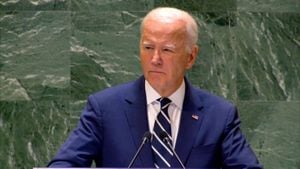With the American political stage continually shifting, the 2024 United States House of Representatives Elections have become not just about votes, but about representation, identity, and the future path of the Democratic and Republican parties alike. A recent election results showcase how diverse voices are finding their way to Congress, particularly through the historic win of Korean American candidates.
On November 14, 2024, California State Senator Dave Min clinched victory over Republican opponent Scott Baugh for the 47th Congressional District seat, marking his inaugural leap to the federal stage. His triumph signals the emergence of Korean American lawmakers within the often homogeneous walls of the U.S. Congress, contributing to the narrative of increasing diversity within American politics, which has been changing gradually over the decades.
Min, who expressed his hopes and vowing to bolster America's democratic foundations via social media, is not standing alone. He joins the ranks of other notable Korean American leaders, the list now enriched with rising representatives including Andy Kim, the first Korean American Senator, showing how the political climate is shifting.
"I know many of us are anxious about the future of our country, but we cannot give up on America," Min stated on X, formerly Twitter, conveying both the optimism and the determination he carries as he moves to the national level. His background is impressive, having previously served as assistant law professor at the University of California, Irvine, and being well-educated with degrees from the prestigious Wharton School of Business and Harvard Law School. This foundation not only lends credence to his political aspirations but also allows him to bring perspective to the issues faced by both local and national constituents.
The significance of Min’s victory is not only reflected through Min’s personal achievement, but it carries weight across various social and political landscapes. His election is seen as paving the way for others from underrepresented communities who yearn for their voices to be amplified within the polyphonic makeup of Congress. Historically, Korean Americans have had limited representation, and each election victory adds momentum to the call for broader inclusivity.
Looking back on previous elections, the growing trend of Asian Americans taking on leadership roles has become more prominent, as highlighted by Min’s and Kim’s successful campaigns. Their presence is likely to inspire younger generations to pursue political paths and advocate for relevant matters such as healthcare, education, and immigration reform. These issues resonate not just with their core demographic but with the wider American populace, as they often tether personal stories and realities of struggle and resilience.
Meanwhile, the Republican Party stands at its own crossroads heading toward the upcoming elections—facing challenges of its own identity, particularly surrounding the shifts initiated by the Trump administration. The GOP finds itself needing to reconcile traditional conservative values with the sensibilities of the more moderate factions within the party. This internal tug-of-war could affect the party's ability to field candidates effectively across various demographics and regions.
The 2024 elections promise not only to be competitive but transformative as they reflect America’s growing diversity. Such dynamics are echoed on various fronts, from the increased participation of younger voters to the changing socio-economic realities shaped by global events, such as the pandemic and economic turbulence. Voter turnout is predicted to be pivotal this election season, as various groups mobilize being acutely aware of their collective power to influence outcomes.
The anticipation surrounding the potential shifting of the House majority as both parties arm themselves with strategies and narratives has triggered intense debates, discussions, and campaigns. There's palpable excitement around what this means for pivotal legislation across issues like climate change, women’s rights, and economic recovery plans. Each candidate's stance on these issues can sway undecided voters—making the race all the more intriguing.
Polls indicate fluctuated approval ratings among all candidates, leading to heightened competition—a perfect storm for political drama. Attention will also be centered on areas traditionally seen as battlegrounds, with local leaders and party enforcers working tirelessly behind the scenes to fortify support bases.
For many voters, especially from marginalized communities, these elections are not merely about electing representatives but about holding them accountable and ensuring they reflect the values and interests of their constituents. Members from diverse backgrounds, like Min, humanize political discourse, connecting on fundamental issues beyond party lines.
Taking all these factors together, the stakes have never been higher for constituents across the U.S. as they approach 2024. Voter engagement efforts are ramping up, with grassroots campaigns actively urging participation. Various organizations are rallying communities to exercise their rights, as they realize their vote can be the key to change.
Pundits and political analysts are keeping their eyes peeled for how the election will play out. With young voters often leading social hotspots and conversations, their engagement could tilt the balance. Campaigns being run on social media have served to invigorate younger generations, who have often opted out due to disillusionment with the political process. Yet, they’re starting to see changes driven by public sentiment.
Districts like California’s 47th have become more than just electoral battlegrounds—they represent the heart of shifting political tides. The engagement of citizens and candidates alike reflects how Democrats and Republicans must evolve to meet the expectations and needs of their constituents.
Looking forward, the path paved by candidates like Dave Min echoes with promise. His success speaks volumes, not just of personal triumph, but of collective advancement. The narrative surrounding the 2024 House elections provides hope for those who believe each vote can spark change and each voice can drive discourse about justice and equality.



